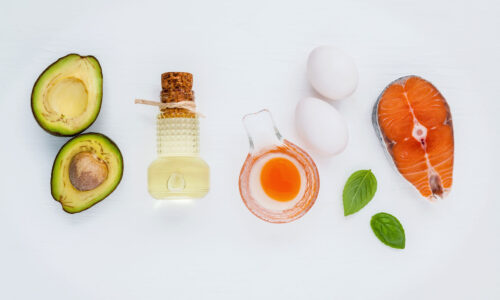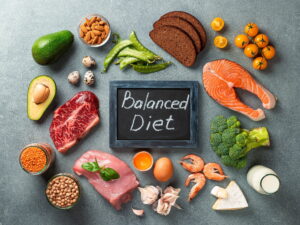Your skin is your body’s largest organ and a true reflection of your health. Keeping your skin radiant and healthy isn’t just about your skincare routine but also about your daily diet. Food provides your skin with the nutrients it needs to repair itself, retain moisture, and protect itself from environmental damage. Vitamins, minerals, antioxidants, and healthy fats all contribute in different ways to maintaining smooth, radiant skin. If your diet doesn’t provide enough nutrients, your skin can become dry and dull, develop breakouts, or age prematurely. Eating a healthy diet can enhance your skin’s health from within. This gives you a natural glow that no amount of makeup can match.
Hydration as the Foundation of Healthy Skin
Staying hydrated is one of the easiest and best ways to achieve beautiful skin. Water helps maintain skin elasticity, removes pollutants, and keeps cells plump and hydrated. Dehydrated skin can become dry, flaky, and sensitive. To restore moisture balance, drink plenty of water daily and eat water-rich foods like cucumbers, oranges, and watermelon. Herbal teas can keep your skin hydrated and contain antioxidants for protection. Keeping your skin hydrated is essential for a youthful, radiant complexion.
How Antioxidants Protect Your Skin
Many fruits and vegetables contain antioxidants, powerful chemicals that help protect the skin from free radical damage. Environmental pollution, sun exposure, and processed foods can all produce free radicals, which can accelerate skin aging. Berries, spinach, kale, almonds, and green tea are all rich in antioxidants. They help offset these damaging effects and keep skin firm and youthful. Vitamins A, C, and E are particularly beneficial for the skin because they help the body produce collagen, prevent wrinkles, and repair UV damage. Eating colorful, antioxidant-rich foods can make your skin look brighter and healthier.
The Importance of Protein for Skin Repair
Protein is an important vitamin that aids in cell repair and produces collagen and elastin, keeping skin firm and youthful. Inadequate protein intake can make skin more fragile and prone to sagging and wrinkles. Eggs, fish, beans, lentils, and chicken are excellent sources of lean protein, providing the body with amino acids that help repair damaged skin and maintain healthy skin. Daily protein intake helps maintain firm, healthy, and radiant skin and promotes skin regeneration.
Vitamins and Minerals for Skin
Several vitamins and minerals are highly beneficial for your skin. Vitamin C helps produce collagen, brightening skin and reducing hyperpigmentation. Vitamin E is a powerful antioxidant that protects against sun damage. Vitamin A aids in cell renewal and keeps skin smooth and clear. Zinc helps heal and eliminate acne, while selenium helps protect against oxidative stress. You can get these nutrients from foods like citrus fruits, carrots, almonds, seeds, tomatoes, and leafy greens. Eating various nutrient-rich foods is crucial for maintaining healthy, radiant skin.
Reduce Your Sugar and Processed Food Intake
What you avoid is just as important as what you do eat. Consuming a lot of sugar and processed foods can lead to inflammation, breakouts, and premature aging. Glycation is a process that occurs when you consume too much sugar. It breaks down collagen and elastin, making your skin look older and sag. Many processed foods contain harmful fats and additives that can irritate and dull your skin. Eating whole, unprocessed foods and avoiding sugary snacks not only improves your health but also keeps your skin looking fresh and radiant.
The Role of Gut Health in Skin Appearance
There is a close link between gut health and skin health. An imbalance in gut flora can lead to problems like acne, dermatitis, or dull skin, as poor digestion makes it harder for the body to absorb nutrients. Foods rich in probiotics, such as yogurt, kefir, sauerkraut, and kimchi, promote the growth of beneficial gut bacteria, which in turn benefits skin health. Foods rich in prebiotics, such as garlic, onions, and bananas, feed these beneficial bacteria and contribute to a balanced gut flora. Your skin needs a healthy digestive system to absorb all the nutrients it requires.
Lifestyle Habits That Complement Nutrition
A healthy diet is crucial for beautiful skin, but other lifestyle choices can also help. Getting enough sleep allows your skin to repair itself while you sleep, while managing stress can help prevent skin problems like acne and redness from worsening. Regular exercise improves circulation and contributes to the delivery of nutrients and oxygen to your skin. Avoiding smoking and excessive sun exposure is also important for maintaining youthful-looking skin. Eat a healthy diet and follow these guidelines, and your skin will look healthy and radiant.
Conclusion
One of the best ways to achieve healthy, beautiful skin is to eat healthily. Every nutrient contributes to smoother, more elastic, and more radiant skin. For example, drinking enough water, eating healthy fats, proteins, and vitamins, and getting enough antioxidants all contribute to healthy skin. Avoiding sweets and processed foods and paying attention to your gut health will keep your skin looking its best. By eating healthy, getting enough sleep, managing stress, and making smart choices, your skin will glow from the inside out. Instead of relying solely on skincare products, focus on your nutrition for lasting results and a truly healthy glow.
FAQs
1. Which foods contribute to healthy skin?
Fruits and vegetables rich in antioxidants, omega-3 fatty acids from fish or seeds, and hydrating foods like cucumbers and watermelon all contribute to beautiful skin.
2. Does drinking more water make your skin healthier?
Yes, drinking enough water helps maintain skin elasticity, flushes out toxins, and prevents dehydration, all contributing to healthier, more beautiful skin.
3. Do you need supplements to maintain healthy skin?
A healthy diet should provide most people with all the nutrients they need, but if you have certain deficiencies, supplements can help. It’s best to consult a doctor before starting supplements.
4. Does sugar really affect your skin?
Yes, excessive sugar intake can damage collagen and elastin, making your skin look dull, causing breakouts, and accelerating aging.
5. How long does it take for changes in your diet to show up on your skin?
Results vary, but many people experience changes in the texture and appearance of their skin after four to six weeks of following a healthy diet.




